ePLUS Retina enables proper downhole calibration of fishing tool for quick plug retrieval
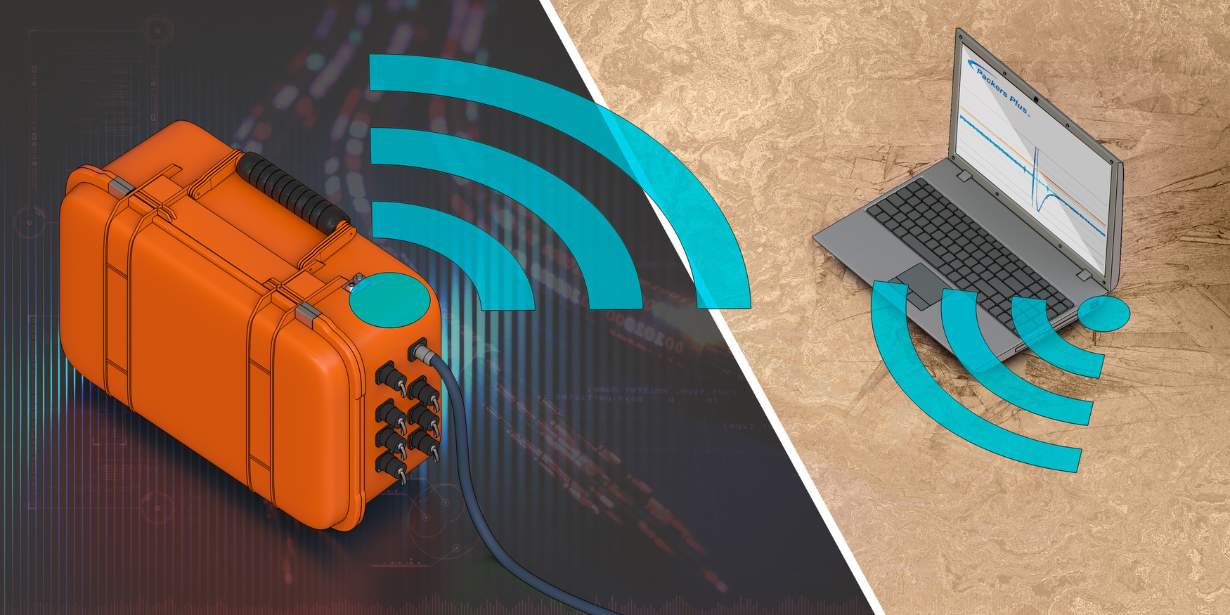
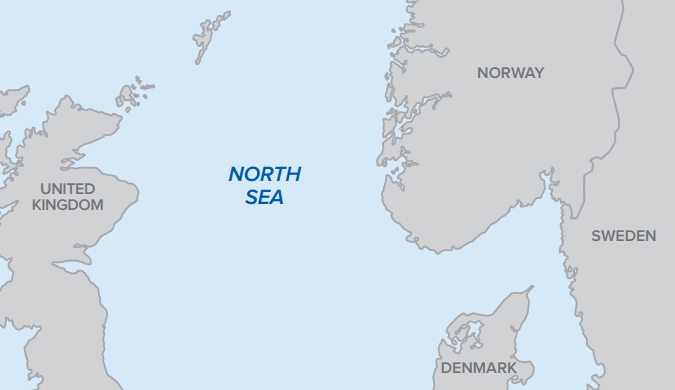
A North Sea operator needed an innovative solution to provide the real-time feedback of downhole fishing operations and reached out to Packers Plus to support using the ePLUS® Retina monitoring system. The Retina system is an innovative technology that uses a proprietary array of sensors to collect and analyze signals from multiple locations on the wellsite, independently from the data van or coil cab.
This portable system is non-intrusive and operates separately from conventional measurement equipment without interfering in concurrent surface or downhole operations.
Challenge
A coiled tubing (CT) hammer was required to retrieve another vendor’s plug that was set at the top of the liner to isolate the well after stimulation operations were completed to allow the upper completion to be installed. After several attempts to retrieve the plug over the course of a year were unsuccessful, the operator needed support retrieving the plug to produce oil trapped in the wellbore below the plug. Retina captured important acoustic signatures during the fishing operations, helping to narrow down the operating envelope of the hammer to optimize its effect on the plug. The fine-tuning of the hammer operating parameters using the Retina system led to the successful retrieval of the plug, reducing the time spent on intervention and allowing production from the well to be achieved.
Remedial operations using fishing tools can quickly turn into lengthy trial and error intervals due to a lack of information on how tools are operating downhole. While pressure, rate, and depth can be combined with specific tool operating forces to provide indications on functionality, the more data and information available to the on-site personnel, the quicker they will be able to resolve downhole issues and return to normal operations. The lost time and cost of remedial operations is especially pronounced in offshore wells where operating costs can be significantly higher compared to onshore operations.
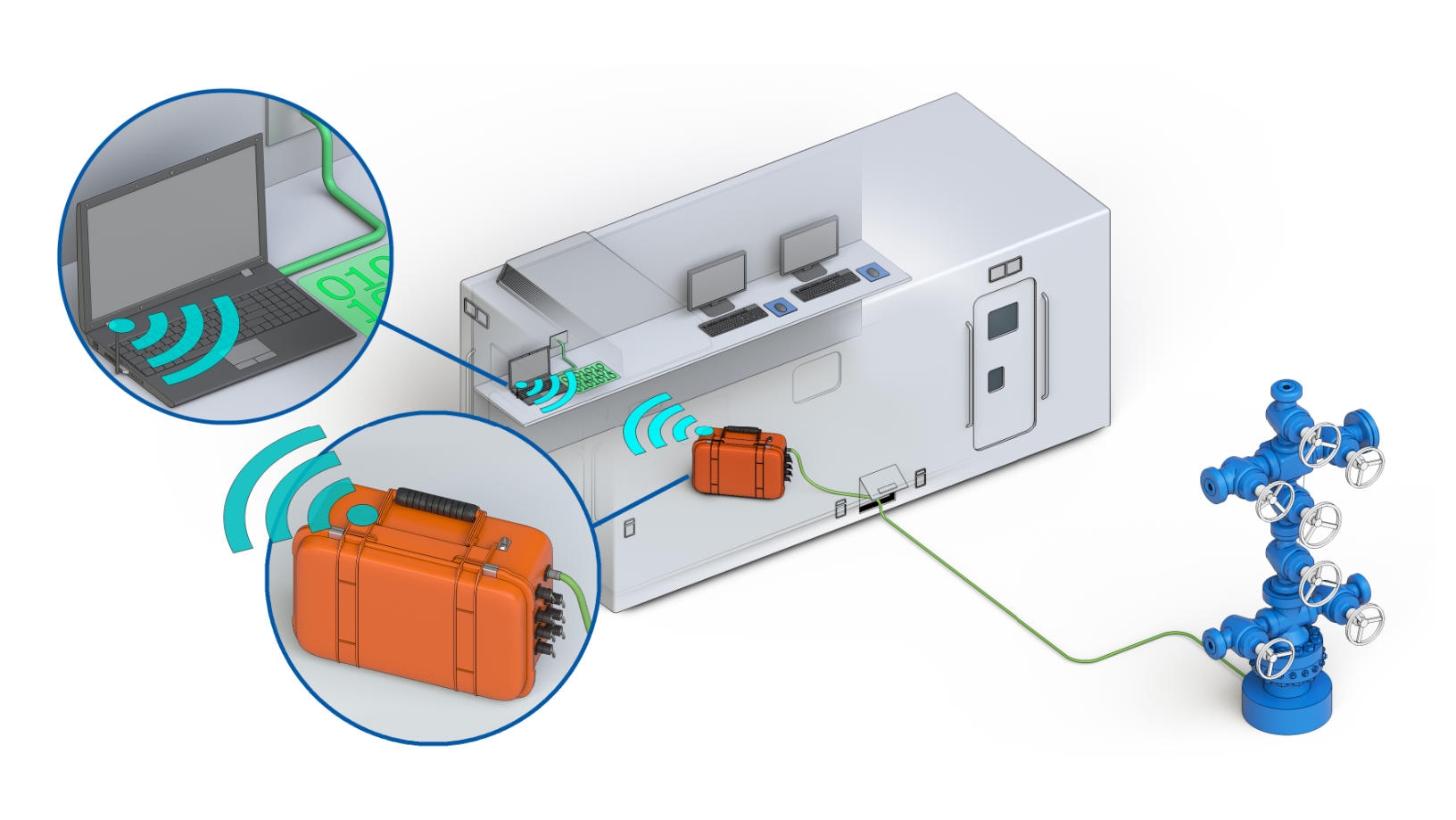
Solution
The ePLUS Retina monitoring system user interface combines real-time measurements from two distinct types of sensors: acoustic and pressure. With a sampling rate of 10,000 Hz, the system offers high-resolution data to provide a clear picture of downhole events to avoid uncertainty and ensure time and resources are not wasted. This allowed the operator to troubleshoot quickly and adjust parameters on-the-fly with confidence allowing the plug to be retrieved efficiently.
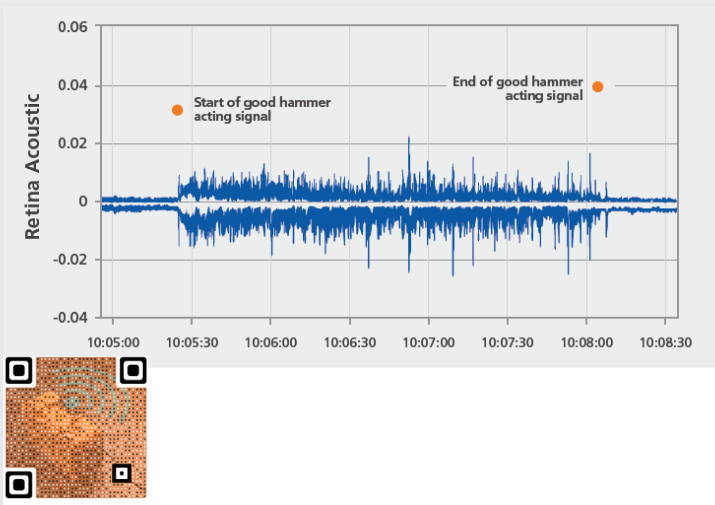
Results
When the CT-deployed hammer was run in hole, Retina was able to successfully detect acoustic signals while the hammer was actuating. When acoustic signals from the hammer were not detected at the expected rates and tension, parameters were adjusted until the hammer could be heard to confirm its activation downhole. The ability to hear when the hammer was actuating (or not) was a crucial factor in identifying the ideal parameters that would obtain the best performance of the hammer to successfully complete the fishing job and retrieve the plug.
Once the plug was retrieved with the CT, drag was recorded with Retina while moving uphole, starting from the depth of the plug, which confirmed that the plug was free. The CT was then moved downhole five meters deeper than the original depth of the plug with the Retina system also recording the drag during this movement. The final movement was upward and noticeable drag was recorded while pulling the plug to surface where it was successfully retrieved.
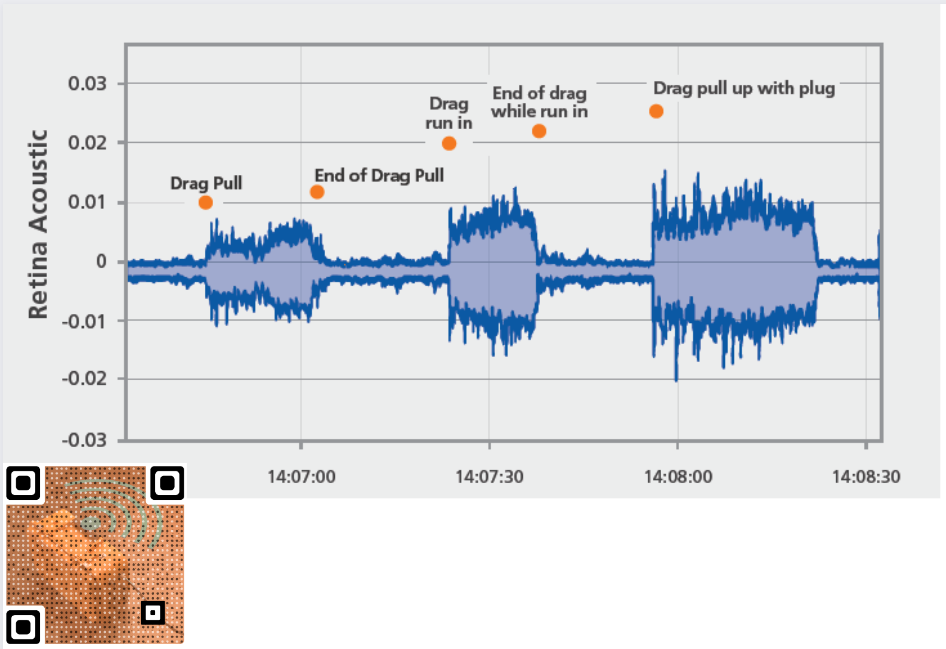
The ePLUS Retina monitoring system has been utilized by operators to monitor operations for hundreds of operations and more than 2,000 stages or interventions. This technology provides operators value by enabling a real-time, independent source of information for both pressure and non-pressure events, without interfering with concurrent downhole or data operations. In situations where the traditional response at surface is either not typical or absent, Retina can provide accurate information for effective decision making, avoiding the need for trial and error. Ultimately, the Retina system allows operators to make real-time decisions which reduce the time and cost to complete their wells, while enabling the fastest path to production and maximum recovery from their reservoirs.
